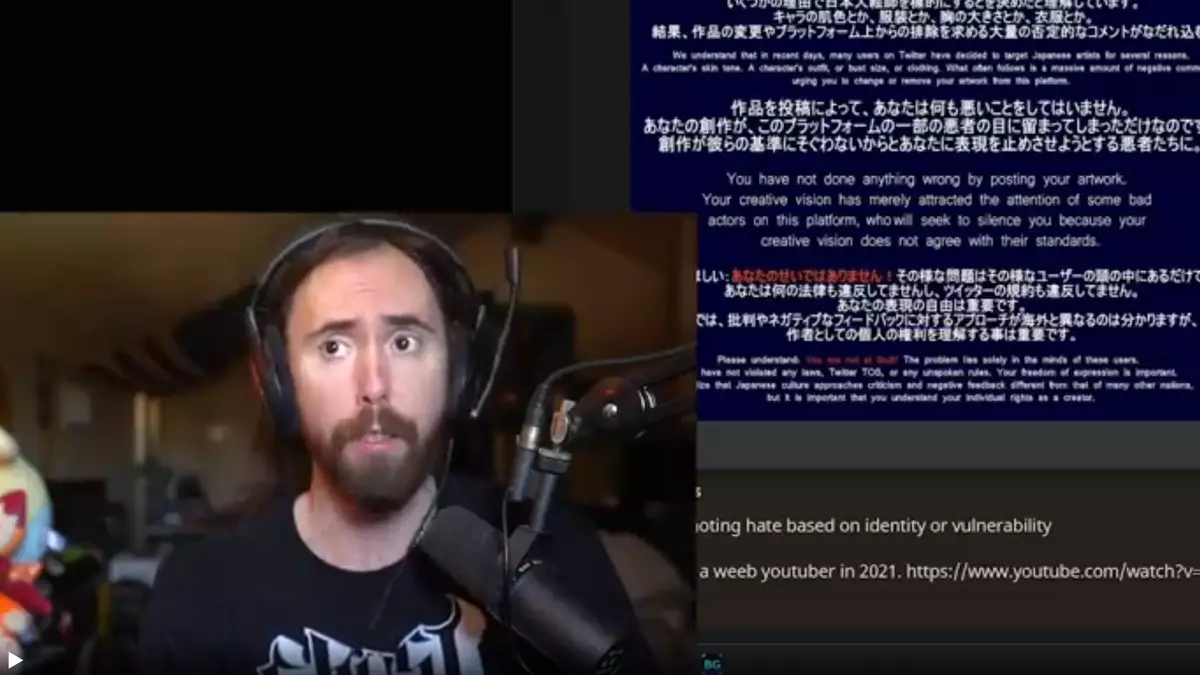As the realm of online streaming continues to expand, the actions of prominent figures such as Twitch personality Zack Hoyt, better known as Asmongold, come under intense scrutiny. Recently, Hoyt found himself at the center of a storm after engaging in a tirade that many considered inflammatory and racially charged during a live broadcast. His comments, particularly regarding the ongoing conflict in Gaza and the civilian casualties stemming from military actions, flouted the basic tenets of social responsibility and community standards that platforms like Twitch uphold.
While streaming offers a unique space for sharing commentary and engaging with audiences, it also comes with the responsibility of maintaining a respectful dialogue. Hoyt’s statements, which blatantly disregarded the gravity of loss of life and promoted divisive narratives, suggest a troubling complacency regarding the influence he wields as a content creator. This incident raises crucial questions about the consequences of hate speech and the role of accountability for those in the public eye.
What makes Asmongold’s statements particularly egregious is the manner in which they were delivered. His dismissal of the immense suffering experienced by civilians in Gaza, referring to them as “terrible people” from an “inferior culture,” exemplifies a blatant dehumanization of a group of individuals who are currently facing extraordinary hardship. As a Twitch streamer with a large following, his words carry significant weight, easily influencing a broad audience.
Moreover, Hoyt’s comments are not merely opinions; they reflect deeply ingrained prejudices that echo harmful stereotypes. By framing an entire culture in such a derogatory light, he actively contributes to the cycle of xenophobia and bigotry that continues to plague societies around the world. In a digital landscape increasingly characterized by the spread of misinformation and division, such remarks risk exacerbating existing tensions and fostering hostility against vulnerable groups.
Twitch, like other social media platforms, has specific community guidelines designed to curtail this type of behavior. These guidelines explicitly prohibit hate speech, incitement of violence, and discrimination against protected characteristics. In Hoyt’s case, his comments clearly violated these tenets, prompting a call for his ban from the platform. This situation illustrates a critical aspect of the evolving landscape of digital spaces: the need for moderators and platforms themselves to enforce rules consistently and without bias.
The efficacy of Twitch’s response, or lack thereof, also reflects broader societal questions of how hate speech is moderated online. As public outcry increases, so too must the platforms’ willingness to respond decisively. Moderation practices must be robust enough to swiftly address and alleviate such issues, ensuring that hate-doers are held accountable for their influence.
Following the backlash from his comments, Asmongold issued an apology on social media, stating, “Looking back on it, I was way too much of an asshole about the Palestine thing.” However, this statement was met with skepticism by many observers, who noted that it failed to adequately address the underlying prejudices in his remarks or demonstrate real understanding of the gravity of his statements.
The lack of genuine contrition in Hoyt’s words reflects a frequent issue in the digital space—individuals often offer surface-level apologies without engaging in the necessary self-reflection or extending empathy towards those they’ve harmed. This minimal accountability presents a barrier to meaningful dialogue about race, culture, and responsibility in the online sphere.
The Asmongold controversy serves as a pivotal point for discussing the need for greater accountability and moral responsibility among online influencers. As content creators continue to shape public discourse, they must also be willing to confront the consequences of their statements and actions responsibly.
Moreover, there must be continued advocacy for stronger policies and enforcement from platforms like Twitch to ensure that hateful or prejudiced content does not find a foothold in popular digital spaces. Future engagement in these conversations should emphasize not only the surface-level ramifications of hate speech but the societal impact it has on communities at large. In this era of increased connectivity, it is paramount that we cultivate an environment where respect, empathy, and cultural understanding take precedence over divisiveness and hate.

